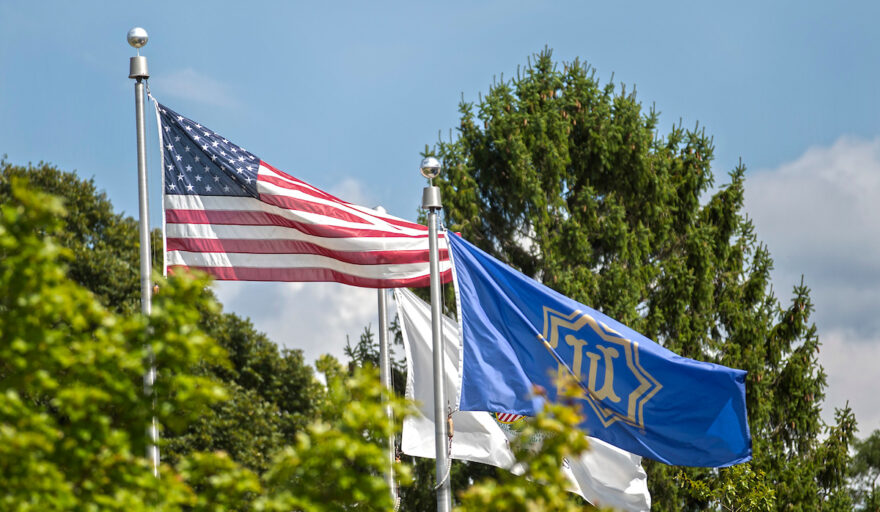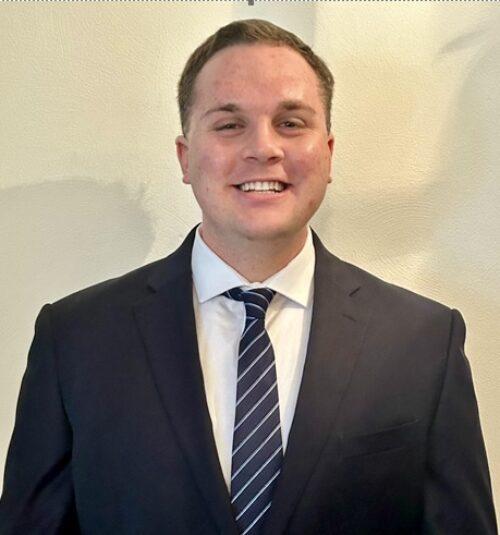Veteran to Advocate: Brandon Seidensticker’s Transition to Social Work

Q&A:

You served four years as active-duty in the Marines Corps before switching over to the Illinois Air National Guard and starting your online social work degree (iBSW). What inspired you to make these transitions, and how do you feel each experience has shaped you?
After my Active-Duty Service, I completed everything I wanted to do. I deployed, acquired work experience, communication skills, and learned how to structure my life. All these were skills I learned and I felt content and I wanted a new challenge. The Air National Guard was a way I could stay local and be with my family and still service but with a better work life balance. The guard also provides 120 credits hours paid so essentially my iBSW is being paid for along with the iMSW. The transition from the Marine Corps to the Air Force is night and day. I have found that I like the Air Force culture better. I am incredibly grateful for all the experiences from my service and what I have learned from the iBSW program because it makes me a better future practitioner.
What has your experience with the iBSW program been like so far?
My experience in the iBSW program has been nothing but a phenomenal experience so far! The program has made it possible to go to school full-time while working full-time as well. I feel comfortable in all the classes being a veteran and the faculty are professional and create a safe space for everyone. I have learned so much and I am grateful for all the experiences so far. I highly recommend veterans and current service members to join the program. The iBSW program is accommodating to those currently serving as well.
As someone with a strong background in military service, how do you see your skills and experiences contributing to your work in social work, both during your studies and in your future career?
Since I have been in the iBSW program, my military service has helped me develop a strong sense of professionalism with everyone. Also, I have worked with people from all walks of life in the military, and I enjoy working with others and learning about them as well. The military puts service members in situations to lead and teaches positive communication skills. The discipline from the military has helped me with my studies to do well. The biggest skill I learned that will help me in my future is resiliency skills. Being put in highly stressful situations and building those skills will help me in every aspect of Social Work.
What drew you to the field of social work, and what specific areas or issues are you most passionate about addressing through your future work as a social worker?
What drew me to Social Work was I knew I always wanted to help people. I felt fulfillment in my life when I was in the Marine Corps helping those under me. However, I noticed a huge shadow over the military culture, the stigma of going to receive mental health treatment. It is seen as a weakness and sometimes a military member may receive backlash from their unit when receiving services. It took a long time for me to build the courage to get help with the stressful environment that the Marine brought. My mentor mentioned Social Work and how vast of a field of it and that I could really make a difference in the Military culture. The biggest issues that I like to combat are stigma but also help service members with the transition from military to civilian. I unfortunately one of my fellow Marines to suicide because the military transition is a beast. A service member goes from one way of life and then goes to be a civilian. All that structure that the military provided is now gone. I would like to advocate and provide resources to our transitioning service members to help reduce the stress of that transition. My mentor always told me to look at it not as a transition, but a transformation.
What are some of your future plans once you complete your iMSW?
Upon completing the iMSW, I plan on completing the clinical hours to sit for the test to become an LCSW. After that, I will be commissioned as a Captain serving as an active-duty Clinical Social Worker in the Air Force. Providing therapy for active-duty service members and their families. I also plan on getting my PhD in Education. I would like to become a professor someday.
